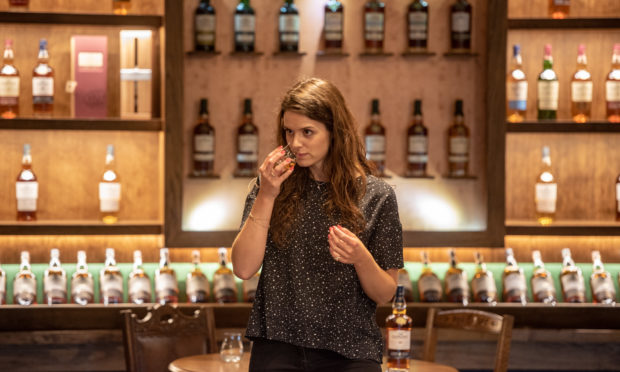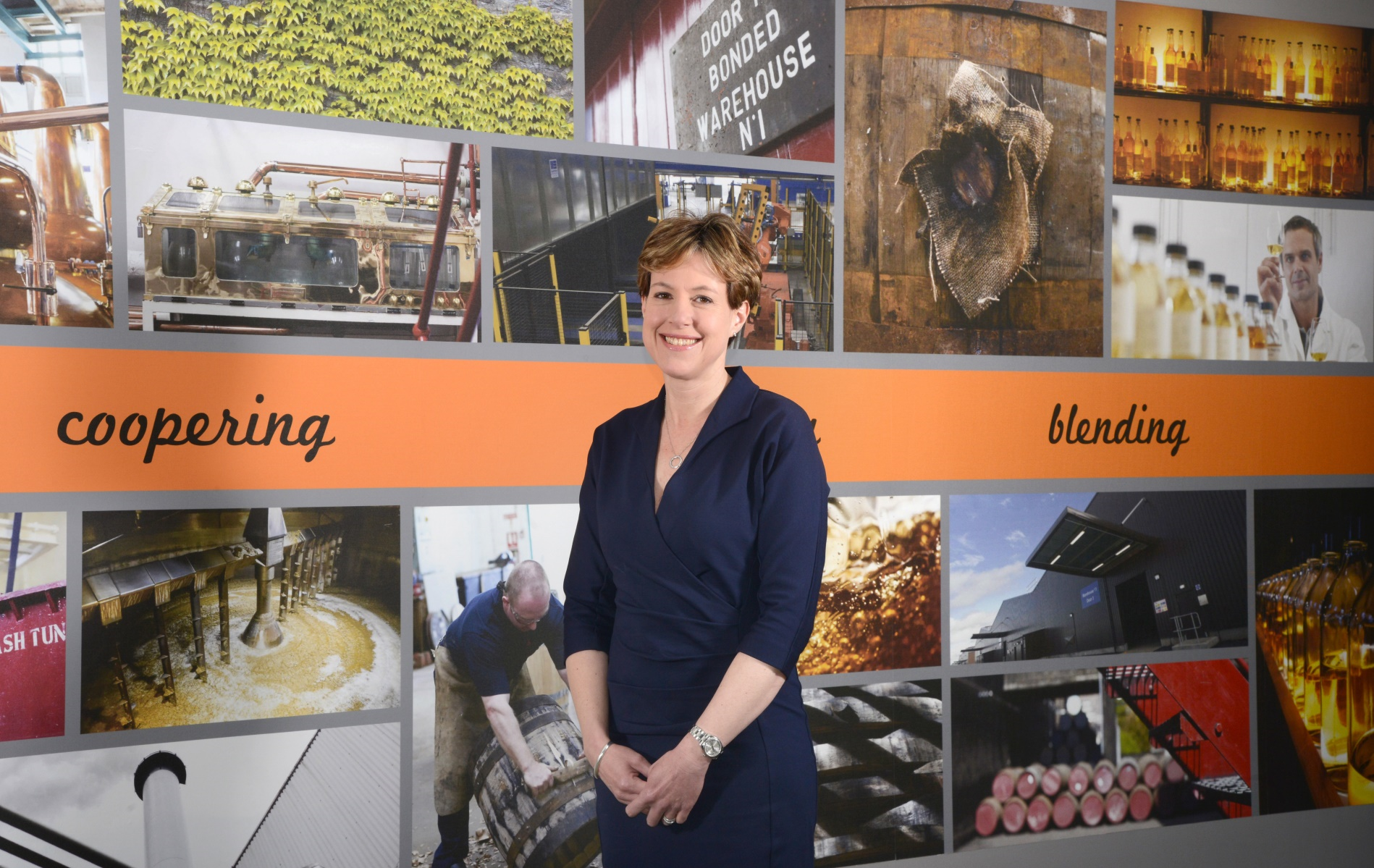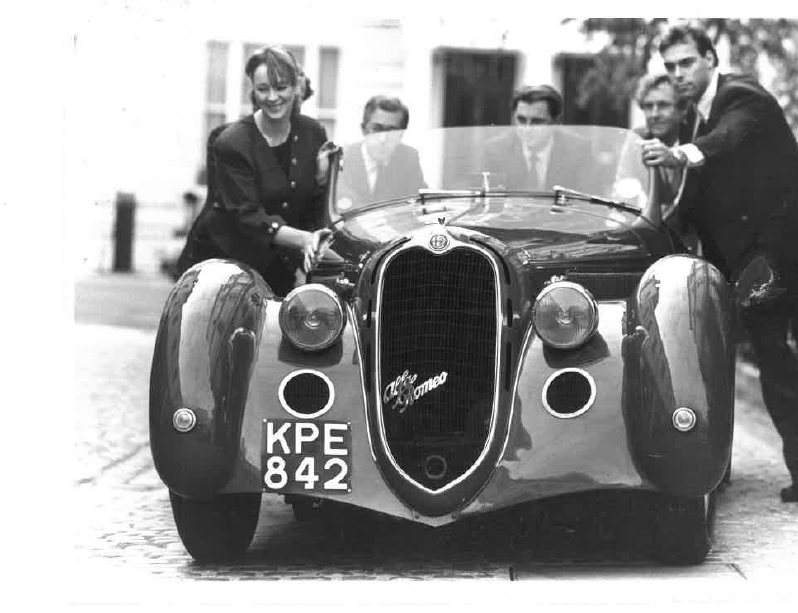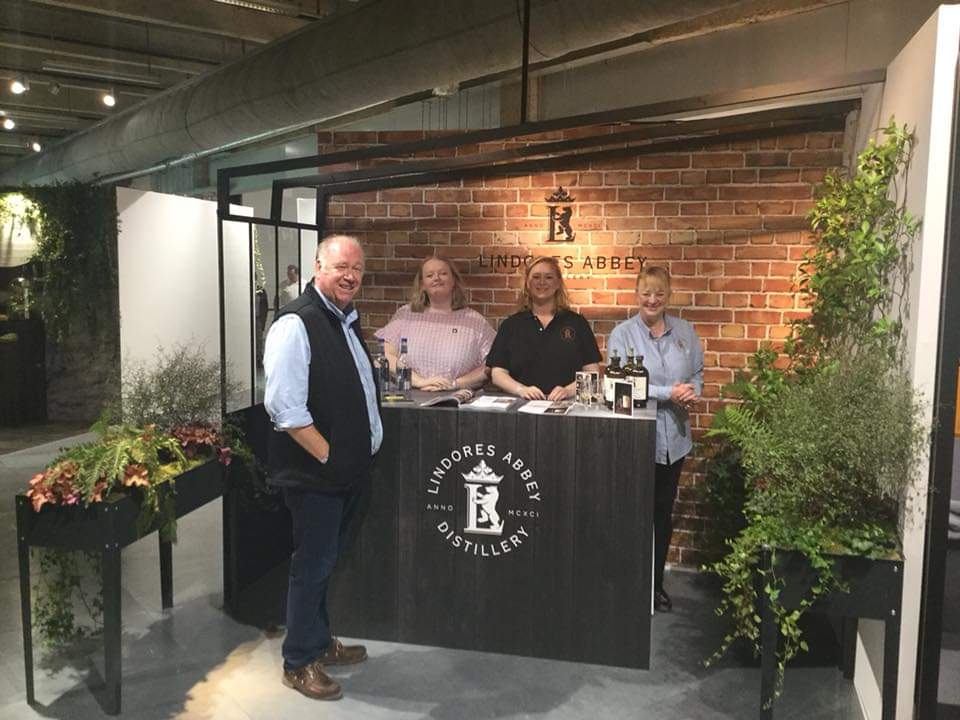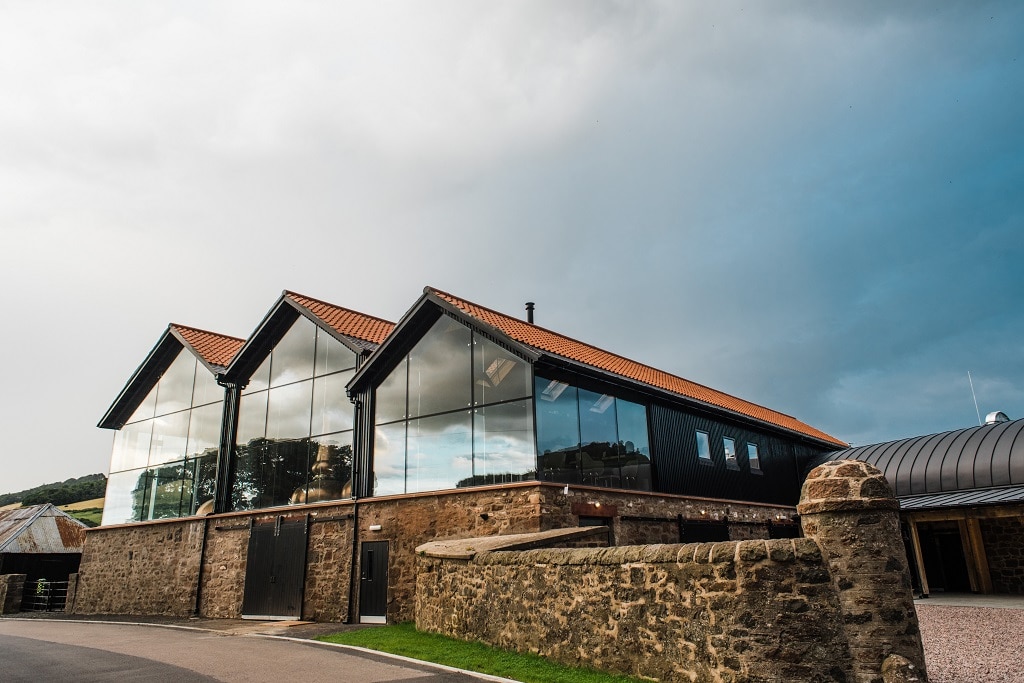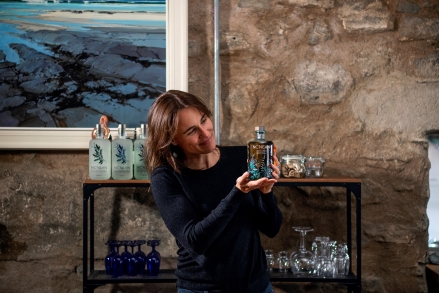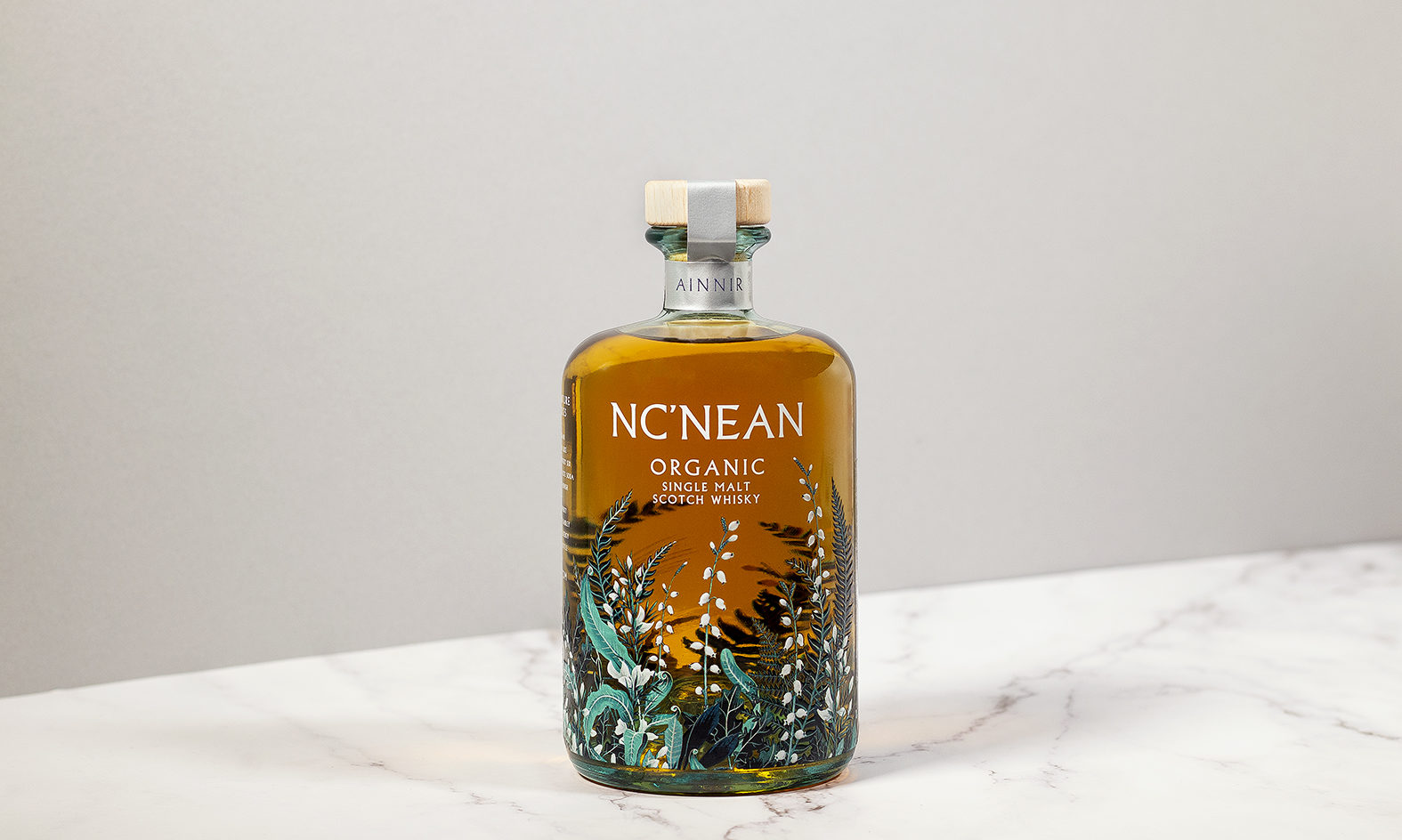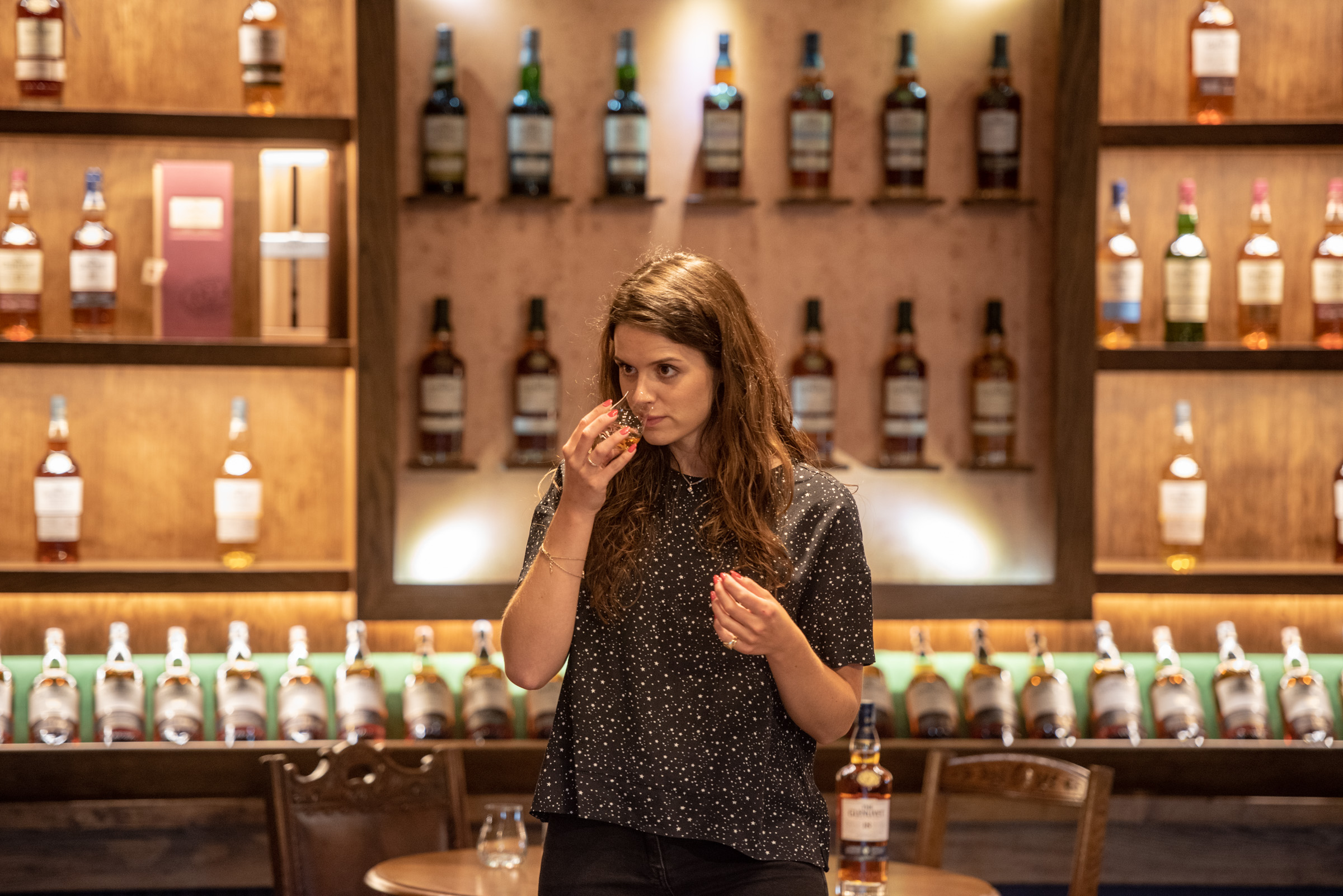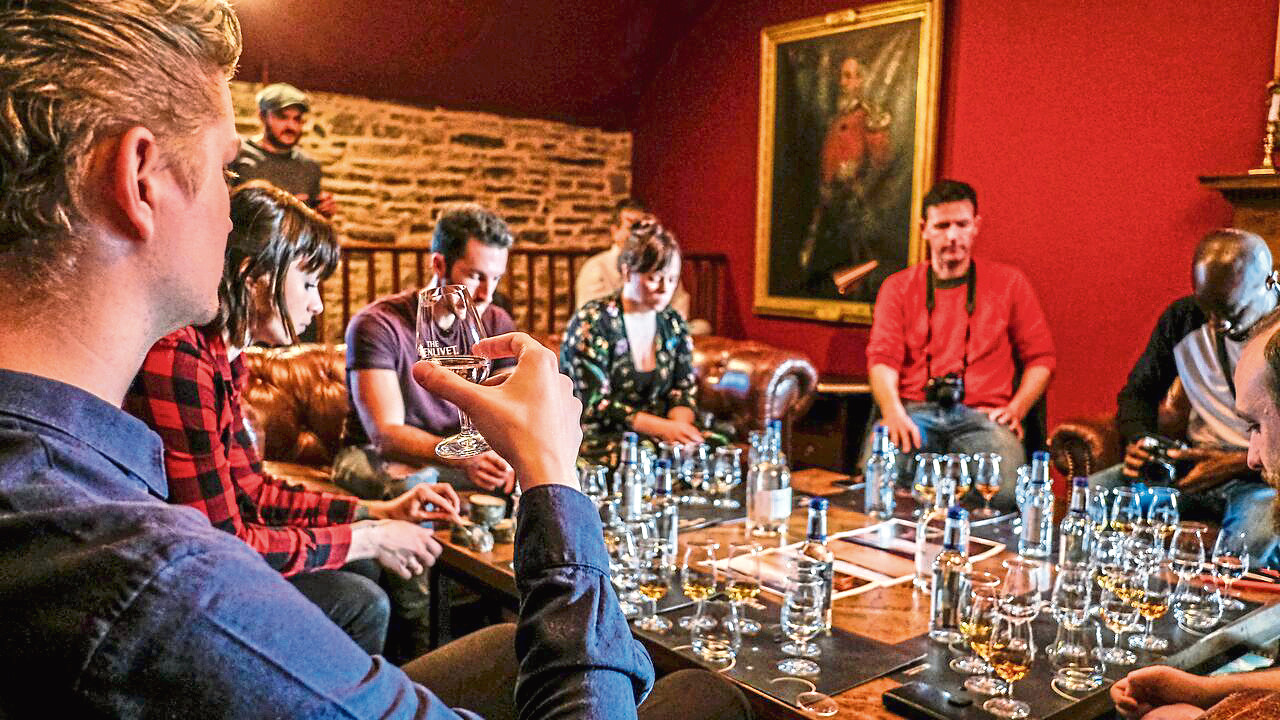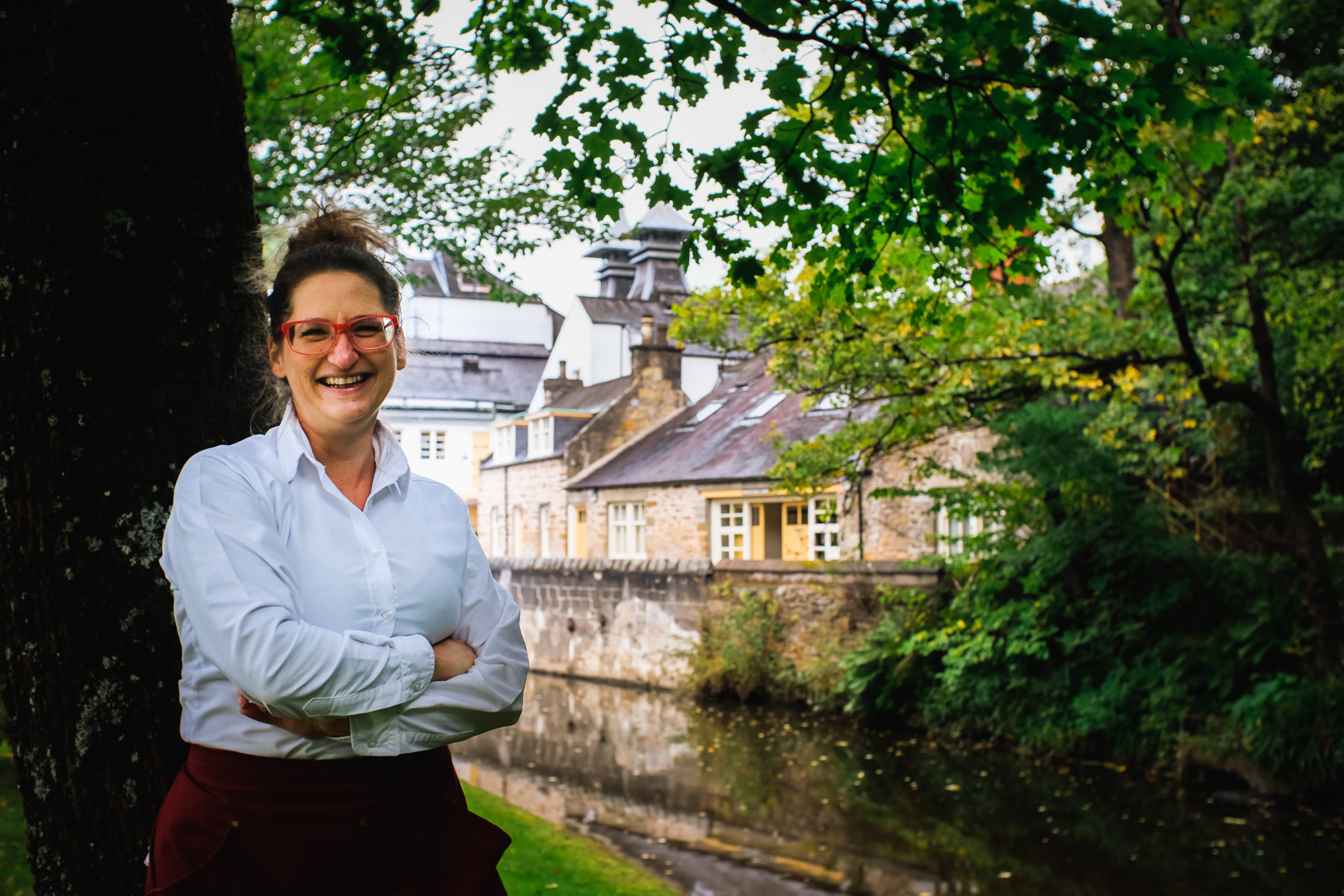In the wake of #whiskygate, there have been calls for the industry to do more to promote diversity in the workplace. Here, Julia Bryce meets some of the women who are paving the way…
Whisky is one of Scotland’s biggest food and drink industries, with export value alone worth £4.9bn.
Responsible for more than 100,000 jobs in Scotland and 40,000 across the UK, the Scotch whisky industry is a force to be reckoned with.
But when it comes to looking into how diverse the industry is, there is little information available to indicate exactly what is going on beneath the surface.
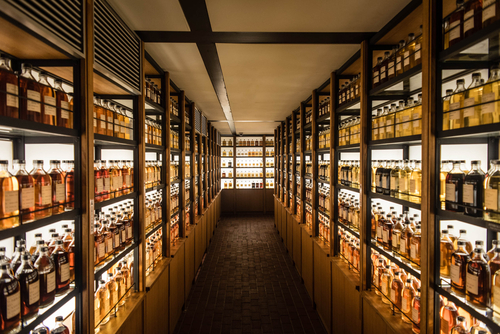
While whisky journalist Becky Paskin‘s recent social media posts have shone a light on the sexist language used within well-known whisky critic Jim Murray’s Whisky Bible, it is only now that brands seem to be acknowledging what should and should not be accepted.
With a flurry of brands jumping on board to support Becky online and state they will no longer support sexist or discriminatory material, industry bodies are also introducing new initiatives which focus directly on improving diversity.
Thank you SMWS for your humble and progressive attitude. https://t.co/QE64VmoTA0
— Becky Paskin (@BeckyPaskin) September 23, 2020
Launching its Diversity and Inclusivity Charter earlier this week the Scotch Whisky Association (SWA) has worked with its 75 members to create this new scheme which will see the review of internal practices and policies take place to ensure everyone has the same opportunities.
The Charter underscores the industry’s commitment to improving equal opportunities across the sector and ensuring the industry embraces diversity in all its forms across its global workforce. It sets a series of minimum benchmarks for all SWA member companies to meet and a clear path for companies of all sizes to work together.
Chief executive of the SWA Karen Betts, said: “The Scotch Whisky industry is launching our Diversity and Inclusivity Charter, doubling down on our commitment to actively welcome people from all backgrounds to work in our companies. Scotch Whisky is hugely diverse in itself, with our vast range of whiskies coming from all shapes and sizes of distilleries across the four corners of Scotland.
“Through the Charter, we are underscoring our commitment to attract a wide range of people to work for the industry in Scotland and around the world at all levels and at all stages in their careers. Our goal is to ensure that our workforce is as diverse as our whiskies and the people who enjoy them.
Today the #ScotchWhisky industry launches our Diversity & Inclusivity Charter – an important step in helping us create a workforce as diverse as our whiskies and the people who enjoy them 🥃🤝🌎
Read our latest release and watch the full video here 👉 https://t.co/hwDaw9Dlcq pic.twitter.com/Sb9FLsju9o
— Scotch Whisky Association (@ScotchWhiskySWA) September 28, 2020
“The Charter is just the start of the conversation. Many of our member companies are already engaging in a range of activities and programmes to improve diversity and inclusion, from flexible hours, to parental leave, mental wellbeing initiatives, and embracing new recruitment processes. What the Charter will now do is foster collaboration between our companies, so everyone can learn from each other’s experiences and ensure we can move forward step by step, positively and collectively, on this important journey.”
More than 200 years in the making – Toulvaddie Distillery
Paving her own way in the industry, Heather Nelson launched the first female-owned and run distillery in more than 200 years in the Scottish Highlands in 2016, with distilling beginning in May 2017.
Toulvaddie Distillery, which is based at the Fearn Peninsula at the foot of Nigg Hill in Ross-shire will produce around 30,000 litres per year.
Keen to change the perceptions of women working in the industry, Heather hopes to encourage others to do the same.
A statement on the website from Heather reads: “Whisky has always been perceived as a man’s drink, and it really isn’t.
“I am pleased to say that this incorrect perception is dying, slowly, but things are changing and by starting my own distillery I hope to help break down the barriers, and say its ok to like whisky, by taking it a step further by producing it myself.
“I have a real passion and desire for making great tasting quality product that everyone can enjoy. Hopefully it may encourage other women to try whisky when they maybe would not have done before.”
Keeping it in the family – Lindores Abbey
Owned by husband and wife Drew and Helen Mckenzie Smith, Lindores Abbey in Newburgh, Fife, is an independent distillery which puts family first, with daughters Poppy and Georgina both playing their part in the business, too.
Helen, who is the operations director of the firm says it is important that the whisky industry is waking up to the issue of sexism and discrimination and is keen to see more women view the industry as a promising career choice.
She said: “Poppy looks after our PR and marketing and Georgina has a full-time job out-with the whisky business, but she will usually help out at the weekends and helps with tours and events. You can’t really help being involved where we live as the distillery is where our house is. The two of them will man the stalls at most of our trade shows, too.
Drew/Dad is spot on. We have never stocked this grim little collection of scribblings. All kudos to @BeckyPaskin for making us all sit up and realise the rampant sexism that exists in this industry. We all move forward with a better understanding. https://t.co/3LkegIjpeJ
— Poppy McKenzie Smith (@GTOpoppy) September 21, 2020
“It is extremely important that the whisky industry is waking up to it on the whole. The norm is that it is becoming more inclusive and the family aspect is also applauded by many consumers as well. Independent businesses are little beacons in this corporate-controlled world and the smaller ones are appreciated more as a result. What is great about the whisky world is the smaller ones can ride alongside the bigger ones. Whisky is so subjective so its really down to the individual.”
While Helen says sexism in the whisky industry does exist, it was her time working as a classic car dealer where she experienced the worst of it.
“My background is classic car dealing. My father was a car dealer and both of the girls’ godfathers are car dealers. It’s in our blood. Sexism in the whisky industry is nothing like what I put up with in the 1980s as a classic car dealer,” said Helen.
“I got told to do try and things by my boss to finalise deals and have been chased around bedrooms and so on. I was once told to wear a rubber dress at a car show. The trouble is we just accepted it as the norm and thank goodness younger people are really standing up against it. I think my generation are guilty for not standing up against it. I really applaud Becky Paskin for standing up – it is a much braver thing than we did in my time.
“I suppose while I say that I had a difficult time with the car dealing, I didn’t not enjoy my time. I think I didn’t say anything as I really loved being a car dealer and never ever felt inferior to a bloke, or never felt I couldn’t do something a bloke could.”
With family values at the heart of the business, Helen says it was her time spent working in hospitality, and more so working for Glenmorangie, that opened her eyes to women leading the way in whisky.
She said: “When I got married I worked in hospitality. Drew and I ran a hotel that Glenmorangie owned and they were a brilliant company to work for. Very early on they recognised females needed a voice. It was very inclusive because I think the family-owned company was very female led because the Macdonalds have more girls than boys. They were very involved in the company.
“Our love of whisky started there and that was around 20 years ago. We worked for them for a long time and then decided to set up our own distillery later on.”
With their team made up of more women than men, Helen ensures equal opportunities are available for all of her staff by giving them the chance to learn distilling at college.
But while she believes change can be made internally in the industry, she is unsure how to tackle consumer perceptions.
She added: “The staff are all going to college to learn to be distillers. Most of them didn’t come from a whisky background and we think it is important that regardless of what they do, they understand the whole process.
“Karen Betts who is the chief executive of Scotch Whisky Association is very keen to change the diversity of whisky. That was one of her big mission statements when she took over.
“If you were at a food and drink show and you gave out products to any lady and as soon as they realise we’re not a gin distillery, they say they hate whisky, that they don’t want to try it. I think somehow we need to change that perception first, and that is a much trickier perception. It is understanding reverse feminism. They say whisky marketing is very male focused, but gin and prosecco marketing is very female orientated. If a chap went into a bar to order a gin and tonic or a glass of prosecco he wouldn’t be questioned, but still, if a women asks for a whisky you are mansplained about if you really want it. I’m not 100% sure how we change that.
“The diversity aspect can sometimes be tricky in Scotland. It’s important everyone doesn’t just pay lip service to it because it is easier in a small country to put it into action, but again, when you’re a tiny family company, the decisions can be made and taken very seriously. You do really have to follow it through and properly look for diversity. Don’t just offer the job to the first person who looks or sounds the part – you do have to put your money where your mouth is.
“My brother-in-law also works for the company and he has severe learning difficulties and the whole team look after him. He works in the warehouse and it is really nice to have him. I do think diversity as a whole is getting better.”
A new era of whisky – Nc’Nean Distillery
Annabel Thomas is another woman leading the way in the whisky industry, establishing Nc’Nean Distillery near Lochaber.
Launching her inaugural organic single malt whisky last month, it claimed a record price for the sale of a first bottle from a new distillery when a mystery buyer paid £41,000 at a charity auction.
Determined to see more women and a younger demographic enjoying Scotland’s national drink, Annabel believes some of the problems are down to the perception on how whisky should be consumed and who should be drinking it.
She added: “The issues are multi-dimensional and very much historical. They include this perception that you can only drink single malt neat, which puts a lot of younger consumers off, and that you have to be old, white and male to enjoy it, which puts everyone else that is not in that category off.
“Both of those statements are, of course, exaggerations and there are plenty of young women who drink whisky. But that image exists in many people’s minds, as proven by the number of times I have been asked, ‘Do you actually like whisky?’
“A man who had spent seven years of his life creating a whisky distillery would not be asked that question.
“It will take time to change, but the whole industry needs to take responsibility for recruiting a more balanced workforce and for ensuring their communications depict and talk to a wide and diverse audience.”
Running a summer internship for women last year, Annabel hopes to get the project back up and running next year after having to put it on hold due to the coronavirus pandemic.
She added: “We have a negative gender pay gap, we employ more women than men, and last summer we ran an internship programme for two women to learn what it took to make whisky and run a distillery.”
Code of conduct – Spirit of Speyside
Lauren Mustard, events coordinator of Spirit of Speyside which organises three large whisky, gin and spirit festivals within the Speyside region, has worked in the industry since she was 18.
Now 12 years into her whisky career, she says while her experience of the industry has been “incredible” the running theme of sexism lurks throughout.
She said: “Generally my experience has been fantastic. The good really outweighs the bad but it is just a constant theme running throughout my time. Never did I think, ‘I can’t do this anymore’, because the support internally has been phenomenal.
“More people seem to be speaking out and part of me thought, ‘why has this taken so long for someone to bring it to our attention?’. I felt I had a responsibility to also speak out. I think it’s important to be honest about these things and wear your heart on your sleeve. I felt very empowered by Becky Paskin, but also by two of my former colleagues Emma Reid and Lyndsey Gray, who I worked with at Glenfiddich.”
Working alongside industry legend Ann Miller who worked at Spirit of Speyside and has decades of experience, Lauren says having a mentor like Ann has shown her how women can succeed in the industry and be just as respected as men.
She added: “Having a figurehead like Ann in your line of work has really helped me. I still really look up to and admire her. She has been in the industry for a really long time. If you’ve got someone you can call on their experience and know they have experienced it, too, they can give you some advice.
“I watched Becky’s Instagram Live with some other members in the industry recently and a code of conduct at events was mentioned. It is quite shocking that this is a necessary step, but I think it would be brilliant just to keep everyone’s behaviour in check. At whisky shows, I experienced the guests seeking out my male colleagues to speak to them. There’s that judgement that maybe an older male will know more about whisky than a younger female, but part of me wonders, are men seeking out other men just because they feel more comfortable?
“My male colleagues would divert guests to me and explain that I was more than capable of answering these questions. That gave me so much confidence and was super encouraging, too.
“Working for Spirit of Speyside, I experience less of it, and it is so nice to see so many different people wanting to support the whisky industry. It has become so diverse and is much more inclusive for men and women, not to mention the different partners we have. It is definitely changing and I hope you more people stand up for others in the industry.”
Breaking down barriers – Strathisla Distillery
Jodi Best who works as a brand home assistant at Strathisla Distillery in Keith is also looking to keep the conversation around diversity going, and is delighted to see more and more brands recognising that more needs to be done.
She said: “I think it is great all of the brands are saying, ‘Woah Becky, you’re right, we have dropped the ball here’, and now they are really thinking ‘how can we do better?’. I can see marketing, products and more changing perceptions. We have the potential of reaching millions of people – what happens in this community will make changes that people won’t even realise.”
Moving from Canada with her husband in 2013, Jodi’s first full-time job in Scotland was with a whisky company. Having fallen in love with the industry, she is now educating tourists from across the world.
“I had no whisky experience prior to that and I just started learning – there’s so many complexities to it and there’s so much history behind it too,” said Jodi.
“In my role we deal primarily with visitors and facilitate educational experiences like whisky tastings and tours. We’re educators who can transform someone with no whisky knowledge into someone who has a good foundation now, or adding extra knowledge for those who know a lot.
“I’m the ‘older generation’ and was born in the 70s. I’ve internalised a lot of these questions referring to my gender. It is only recently I’ve started to recognise it, especially with the Me Too movement. While I have seen it and experienced it, I didn’t necessarily internalise it as something that wasn’t right.
“The questions like, ‘do you drink whisky?’, you just answer it, but I never think to ask, ‘why are you asking that question? Is it because I’m a woman? Canadian? What is it?’ The other thing I think about is keeping control of a group. Sometimes I feel some of the men on the tours will disregard what I say. You’ll ask them not to take photos or not to wander off and they will, and you’ll have to ask again and again. I wonder, if it’s because they don’t accept my authority because I’m a tour guide, or because I’m a woman? I’m now questioning what’s going on around me more.
“I think the industry has taken great strides in making it more inclusive. I think it’s much easier to get more diversity in bigger cities like London and New York. We’ve been making whisky for 234 years – there’s a huge story there but it is very much about men making whisky. There’s people in this region who are fourth generation whisky.
“There is a place for everyone in whisky and everyone needs to feel comfortable. It’s being able to speak out and not feel alone which is so important.”
